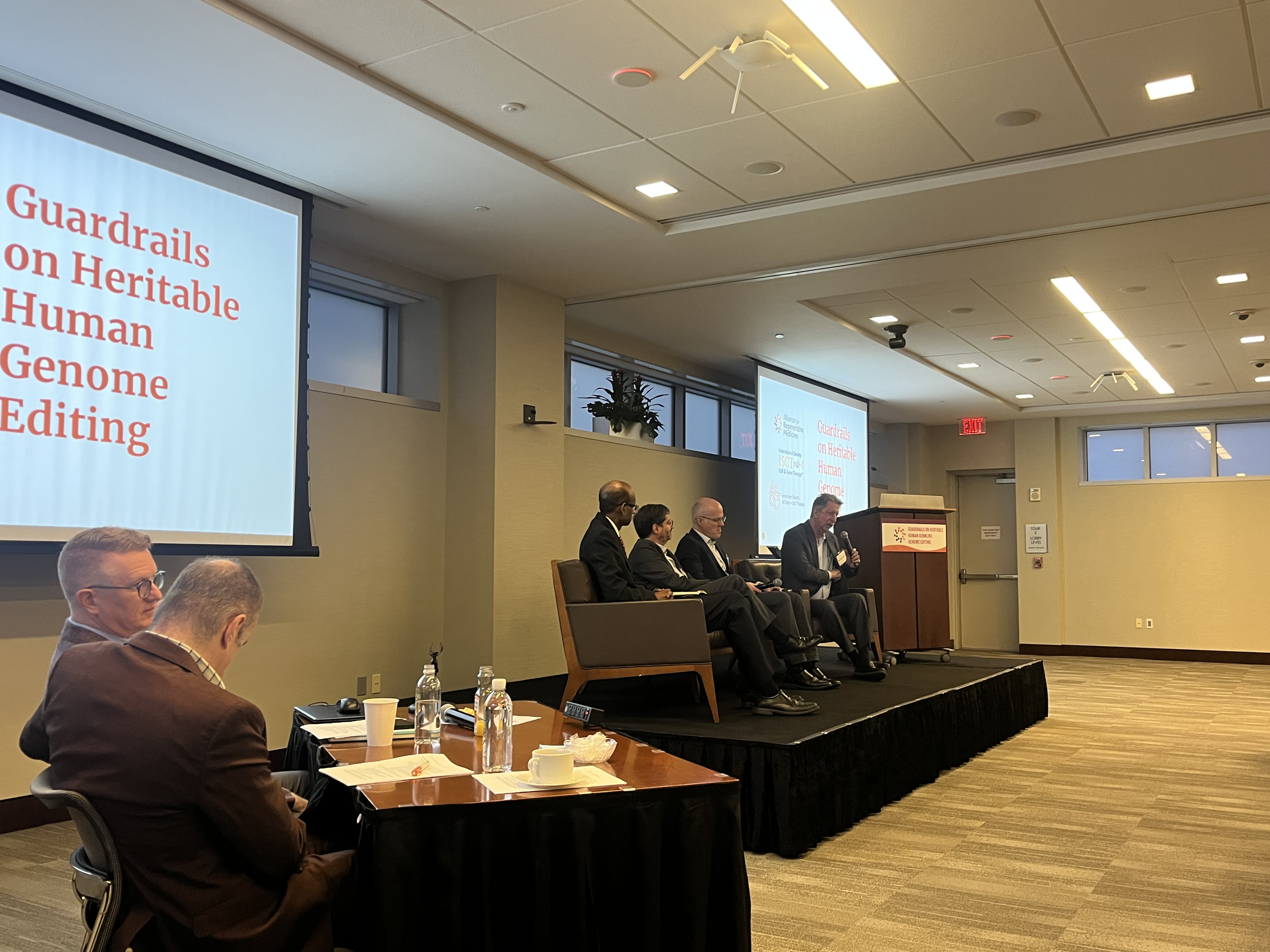Karen Nichols, Esq
Nichols Enterprises LLC.
United States
On March 26, ISCT, ARM and ASGCT convened a panel discussion of ethicists, scientists, patient advocates and religious experts to explore whether Heritable Human Genome Editing (HHGE) should be done and if so, what guardrails should apply for its usage. HHGE is defined as gene editing performed on DNA of human fertilized eggs/embryos whereby the edited change can be passed on to subsequent human generations. Significant global concern was raised with the revelation in 2018 that a Chinese scientist had gene-edited embryos to knockout CCR5 (and potentially confer resistance to HIV), resulting in the live birth of non-identical twin girls and a third baby. Global condemnation of the experiment followed quickly. The scientist was prosecuted and sent to prison in China, though he has subsequently been released and has stated that “tinkering with human embryos will certainly be worth the risk.[1] This statement has prompted further global scrutiny on whether clinical implementation of this unproven and potentially dangerous unregulated technology is being pursued.
With these events and several recent global meetings on gene editing ethics and governance as a backdrop[2], the panelists explored
● current and future state of treatments, including opportunities for somatic cell gene editing
● current state of the science / tools
● HHGE use in the context of religious faiths
● the parent of a child with a rare disease perspective
● individual and societal ethics
● possible methods for applying guardrails to control current and future HHGE use
It should be noted that through an existing US congressional (Aderholt) amendment[3], the FDA is not permitted to review any IND related to germline editing. Furthermore, per NIH directive, NIH funds cannot be used for germline editing of human embryos.
The output from the meeting and a position statement co-authored by ISCT on HHGE will be published in Cytotherapy and be further discussed at the Global Regulators Summit at the ISCT Annual Meeting in New Orleans in May, 2025.


Left: ISCT leadership gathers for a brainstorming session to prepare for the joint panel
Right: Panel discussion in progress, as Bruce Levine and Miguel Forte take the stage on behalf of ISCT
[1] Greely, Henry T. CRISPR People; The Science and Ethics of Editing Humans, 2021, MIT Press, ISBN 9780262044431, pgs 1 – 21.
[2] December 2015, February 2017, November 2018, March 2023, National Academies, WHO Panel presenters slides presentation 25 March 2025